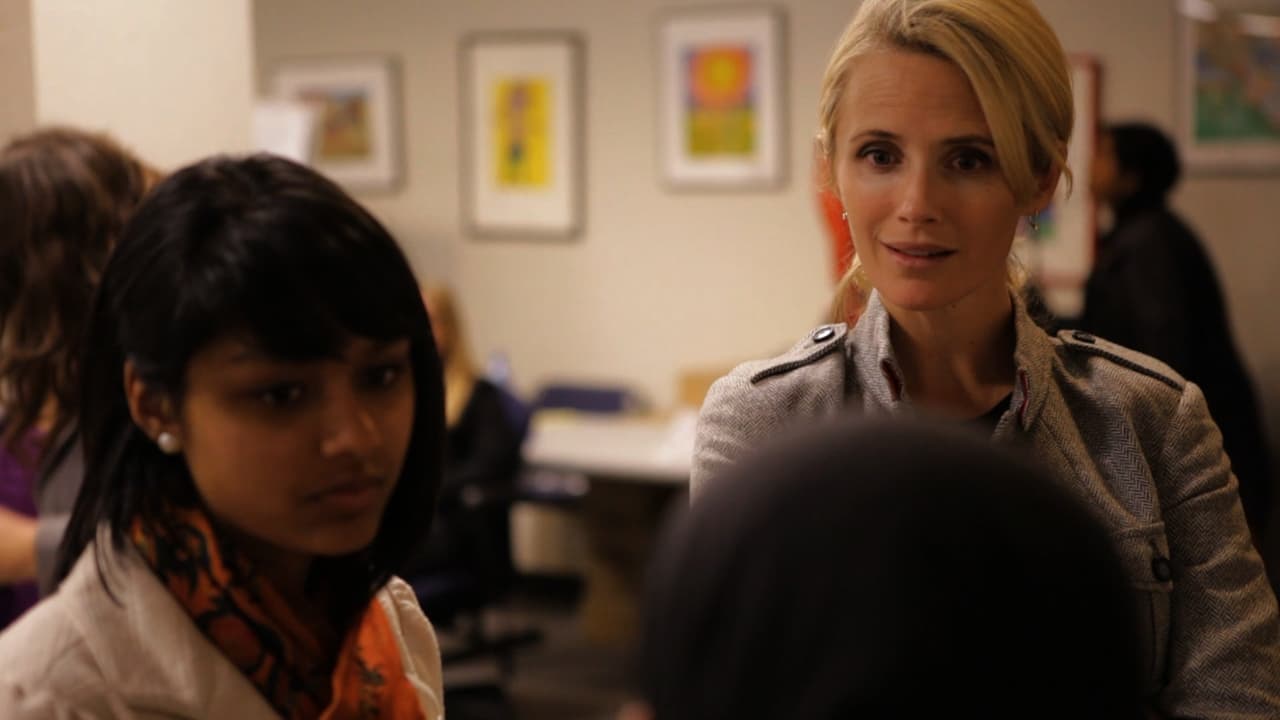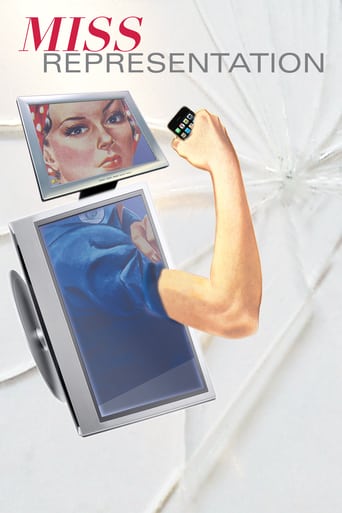AniInterview
Sorry, this movie sucks
Contentar
Best movie of this year hands down!
Doomtomylo
a film so unique, intoxicating and bizarre that it not only demands another viewing, but is also forgivable as a satirical comedy where the jokes eventually take the back seat.
Jakoba
True to its essence, the characters remain on the same line and manage to entertain the viewer, each highlighting their own distinctive qualities or touches.
Alice
While this movie covers mostly basics of how misconstrued women are in media, and seems to reiterate simple facts - I didn't feel like it was repetitive to the point of being tedious. I personally enjoyed the refresher course the movie provided and it gave me some new insight as well. Although a lot of the information given wasn't surprising (which sadly just emphasizes the point of the movie), the recent extent to which gender plays into media (specifically Hollywood) was a new awareness for me; simply because most of us do not go through life scrutinizing every aspect of media and analyzing its gender biases. The movie does a great job of reflecting on past media presentations to prove its points. I appreciate the statistics given because statistics have a general scientific drive behind them that humans innately trust and can certainly create a larger emotional affect for the audience; however, I felt like a little background on how these statistics were gathered (from where?) would have been helpful for credibility. On the other hand, bringing in producers, actresses, hosts, and many other influential people and having them speak about personal experiences where they have experienced gender bias was very powerful and helpful. I feel as though this would be a great documentary movie to show younger audiences (or even older audiences for a refresher or a starting point of discussion!) because it gives a good overview of the problems that media creates in terms of gender related expectations. The movie created a sense of urgency and motivation needed for both men and women to take action and take a stance, even in small every day scenarios. While gender inequality is a great big problem in many, many societal aspects that is hard to tackle, this documentary briefly mentions the more specific issues/topics that are related for possible further discussion (ie. jobs, leadership, eating disorders, bullying, depression, sexual objectification, rape, validation, etc).
Kennedy Griggs
"Miss Representation" gives new light to the ongoing put-down of females as an over-sexualized gender role and sparks in the consumer a need for change. As a whole, this film is long overdue in the revolution to bring back a strong feminist movement to contend with the mass media. Through the personal and intimate interviews with teenage girls, the connection between exposure to mass media and low self-esteem is forged and throughout the documentary is supported. This forged connection includes the link between young women's self-esteem and ambitions to become leaders, which is covered by "Miss Representation" in the form of Sarah Palin and Hillary Clinton's mass media coverage. Both are completely stripped of their political ideals and morals and instead given attention for anything cosmetic or physical attributions. The mass media's focal group of interest is towards young men, thus leaving women with the sexualized female gender-role that exists today. "Miss Representation" does an excellent job in making this concept a viable and very obvious one, and caused me to really open my eyes to what the media is doing to my gender. In conclusion, I believe that this documentary uproots a decades-long issue that lies within the mass media, and that this is only the beginning to the uprising of a new-age feminist movement.
titus227
This film is meant to address the social distortion present in media as it affects women. I feel this doc fails to point out that this happens to youth in general, not just women. Secondly, it should have been stressed that such a focus on sex & marriage leads to increased teenage pregnancies, which, in turn, contributes to young delinquency and uneducated adults having children who will not attend college or even finish high school. Unfortunately, the majority of this doc consists of a woman obviously reading a print out of monologues in a dull, lifeless monotone. Several speakers chastise the media for reflecting the low number of women working in big business and politics in movies, but most of the thoughts presented are fragmented or inappropriate to the topic. These women say such things like 'Women should be politicians so other women will want to be politicians.' 'Women are never leaders and men don't want us to be. Just look at Star Trek.' These statements seemed to defy the fact that England had Queen rulers for over a century and that Star Trek is and always has been a show that shatters social boundaries, and the different seasons have seen Famale captains, doctors, Science officers, ensigns, engineers, psychologists, and a plethora of other positions. It seemed like this documentary was more interested in talking about hurt feelings than any serious issues. It's as if they interviewed the absolute dumbest women available and said, 'Talk about how movies make women look bad,' then showed 15 min worth of UNSCRIPTED REALITY TV clips while the interviewees stumbled through cliché after cliché, generally never making a solid point, cohesive statement and/or expressing conclusions related or even relevant to what was just said. 'I hate bikinis on TV, so I became a politician after a particularly moving episode of Murder She Wrote.' Lastly, some of the issues blamed on media aren't real issues or controlled by media. Why aren't there more women politicians? Same reason there aren't more women trashmen, fisherman, hunters, mechanics, mathematicians, Footballl coaches or construction workers: Most women are uninterested in such professions. Equally interesting is the idea that men are expected to work successfully at a job that isn't embarrassing, or that the media tells youth to hump like rabbits, accumulate debt & go to jail in hopes of turning us all into consumers rather than producers. Monetary slaves providing a financial battery to the rich. Another point left out is that when the youth have teen pregnancies, who will work? Man or Mother? Usually the man, so it is not more surprising to see more men at work than it is to see wives staying home. I feel that this film is highly destructive to the cause it's attempting to address.
asais
I give this a 4 because it was professionally done, in terms of editing and photography, but in terms of content, it really is sub par. Basically this documentary tries to build the case that media is an insidious influence, whenever it is convenient to their case, but ignores any evidence that doesn't fit their theory. For instance if media were so influential, Americans would be thin and fit, but we all know that isn't true. But more to the point the issue with this documentary is that it is not concerned with looking at its arguments in any depth, instead a cheap slogan type of declaration or testimony is put out by some talking head and in a few minutes of selective media clips they try to cover the lack of depth by jumping from topic to topic flooding you with a barrage of clips and speakers. It reminds me more of a political campaign advertisement than a serious documentary really interested in honest examination of an issue.They make points claiming that other countries have had women leaders before us because we don't depict them in the media, but does that even pass quick inspection? Benazir Bhuto who was a female prime minister of Pakistan lead arguably one of the most sexist countries on earth. So how does that argument even pass muster before they put it in the documentary? It epitomizes the level of thinking in this film.Margaret Cho for example claims that sexism was the reason her sitcom failed, but is that really true? Maybe she just isn't funny. It doesn't matter to this film because all they do is throw these statements out there one after another. Statements claiming that shows like jersey shore are sexist because they show women in a bad light are made entirely ignoring the fact that the male cast in those shows are hardly considered respectable either. This type of poorly thought out argument is the basis for the entire film sadly, and because it is so paper thin, they cut from topic to topic in a hyperactive manner.TV networks like FX have even been known to do things like pass on hit shows like Breaking Bad because they rejected the show based on their quest to break into the lucrative female demographic. Apparently the middle aged white lead was enough for them to pass on the show. But such facts do not matter to this film, which assumes sexism is always the answer to every question in the most simplistic way.My problem with films like these is that they are more about employing techniques of propaganda with selective evidence and shallow one sided argument rather than encouraging critical thought about a subject. To promote this as a feminist film is really to give women no credit at all.If one is going to claim that media does women a disservice, I would suggest this film is the most harmful of all. To use the words of Erika Falk PhD from the documentary against herself and the film itself, women like her and this film paint themselves as "more fragile, emotional, and more gullible than men, therefore they are irrational and cannot be trusted in positions of power".

